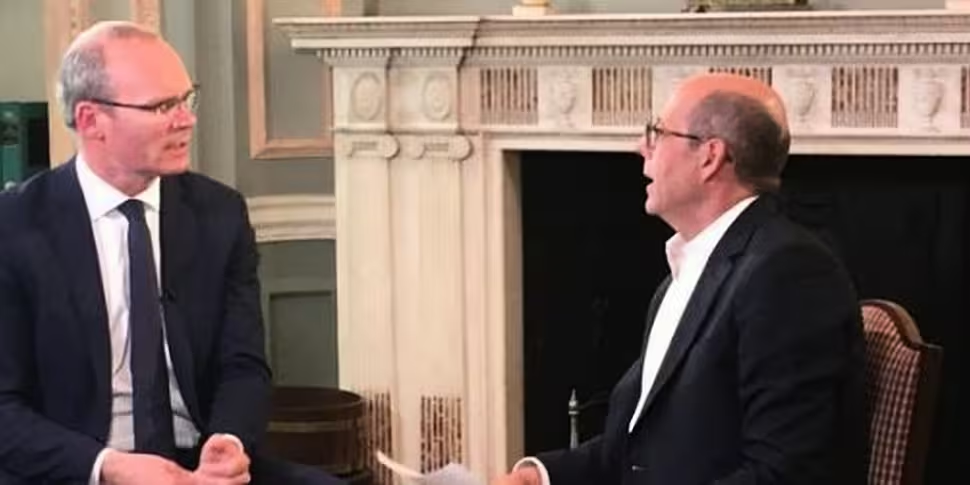The Tánaiste Simon Coveney has dismissed using technology infrastructure on the Irish border after Brexit.
Mr Coveney said the use of drones or scanning systems cannot be allowed at the border, while he reiterated his call for a shared customs area.
Speaking to the BBC from the Irish embassy in London, the foreign affairs minister said the UK government must honour agreements that have already been reached.
"First of all it would be helpful if the British government actually had some consensus around this concept, as opposed to consensus around something else - which people seem to think might work using technology or some other way of creating as seamless a border as possible, but nevertheless border infrastructure.
"Let's not forget what's been agreed in these negotiations to date: because last December there was a clear agreement that the British prime minister signed up to that there would be no border infrastructure of any kind on the island of Ireland and no related checks or controls.
"That means we're not talking about cameras and scanning systems and drones here - it means we're talking about a political solution that allows for regulatory alignment in a way that prevents the need for border infrastructure".
File photo
"We expect that a clear commitment that was made by the British government in black and white in December, and repeated again in March, we are simply asking that that commitment be followed through on".
Mr Coveney said Ireland has shown plenty of flexibility on this.
"In December when the British government wanted to move this process from phase one to phase two, it was Ireland who were unsure about that because we hadn't made progress on the Irish border issue.
"We agreed to allow the process to move forward on the basis of a commitment from the British government that they would address, comprehensively, the Irish issue through a backstop or insurance mechanism.
"Again in March, when the negotiations were stuck and needed to move forward - but were stuck again on an Irish border issue... again we showed flexibility to allow the process to move on... on the back of a commitment from the British prime minister that she accepted that within (the) withdrawal treaty there would be a legally operable backstop in that withdrawal treaty unless and until something else was negotiated".










